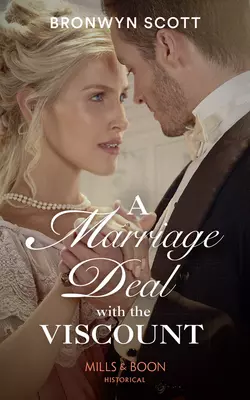A Marriage Deal With The Viscount

Bronwyn Scott
Тип: электронная книга
Жанр: Современная зарубежная литература
Язык: на английском языке
Стоимость: 458.46 ₽
Статус: В продаже
Издательство: HarperCollins
Дата публикации: 16.04.2024
Отзывы: Пока нет Добавить отзыв
О книге: ′I can protect you.′But she must accept his ring!An Allied at the Altar story: after an abusive marriage, Sofia is struggling to find acceptance in Society. So when dashing Viscount Taunton needs her investment for his business, she’s surprised by his strong, supportive nature.In Conall’s arms she discovers true pleasure. Yet to fully leave her past behind, Sofia must consider Conall’s offer of his full protection – in the form of wedding vows!